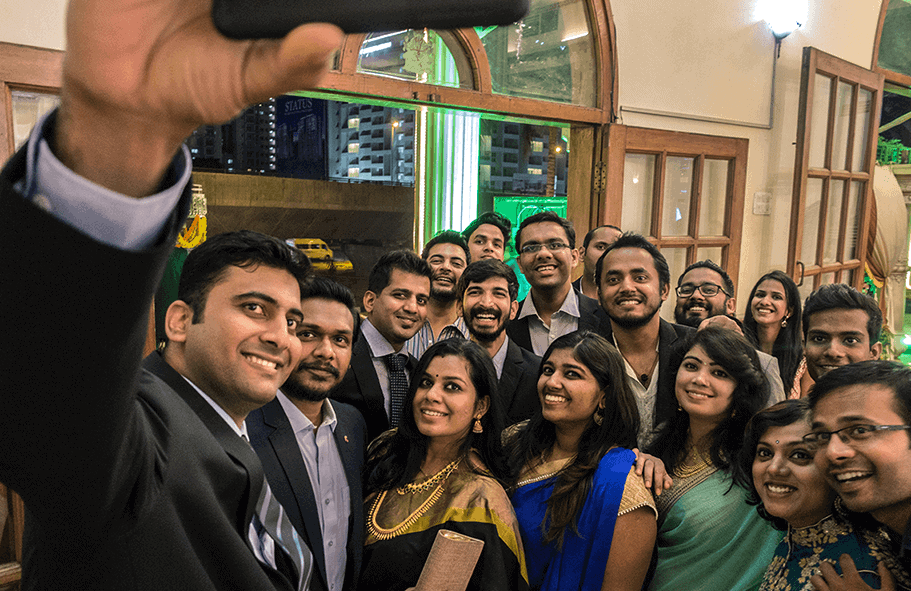Imagine the year is 2030. You are taking a stroll by the beach. Then you suddenly decide to jump into the sea for a warm sunny midday swim. Later, you catch up with some old friends at an Irish pub and decide to play some ice hockey together in the evening and hitch the brand new supercar from Tesla for a drive and call it a day.
Sounds interesting but why is the above any different from what we do today? Here’s the catch. By 2030, all of this could happen not just in the physical world but also in a shared virtual world called the Metaverse.
Are you kidding me? How’s that even possible? We’ll get to that in a bit.
But first, let’s present you with some recent headlines around the topic that might inspire you to read further.
- Facebook changes name to ‘meta’ with a focus to build the ‘metaverse’
- Fashion brands like H&M, Nike, and Adidas open stores in the metaverse
- This couple gets married in the metaverse with dancing and ceremonies
- Bill Gates says metaverse will host most of the office meetings in two to three years
And unless you’ve been living under a rock, you must have already encountered many of the recent developments in the newly emerging virtual space.
But let’s dive deeper into the topic and explore if this new trend is just another fad or a life change fab.
Metaverse: The What, Why, and How
Let’s start this section with a secret confession: We do not have a fixed definition of the metaverse.
Unlike other things, describing the metaverse is hard. Partly because it does not exist as yet. Imagine explaining what the internet is, in the early 1990s. Metaverse is an evolving concept still in its ideation phase. Accurately put, at this stage, it is a dream for the future of the internet.
It will be a hyper-real alternative virtual world that incorporates augmented reality (AR), virtual reality (VR), and 3D avatars where people can co-exist. Online game universes like Fornite and Minecraft already offer shades of the metaverse. And big tech giants like Facebook and Roblox are trying to take it over.
And thankfully we have Mark Zuckerberg, the CEO of Facebook, do the hard job for: define metaverse.
“Metaverse is a virtual environment where you can be present with people in digital spaces. You can kind of think of this as an embodied internet that you’re inside of rather than just looking at.”
This sounds like a science fiction fantasy!
Well, you are right. The term ‘metaverse’ was first coined by Neal Stephenson in his 1992 novel Snow Crash referring to a 3D virtual world inhabited by avatars of real people. And that is exactly what the future of the internet is going to look like. Just like having an online profile on social media sites like Facebook, people will soon be represented by their avatars in the metaverse.
What isn’t metaverse?
But wait, people often misunderstand many other newly emerging things with the metaverse. Often, many of the analogies presented are likely to be a part of the metaverse, but not the metaverse itself.
Matthew Ball, venture capitalist and one of the earliest proponents of the metaverse, has listed down what a metaverse is not..
- A Virtual World. Yes, virtual games with AI-driven characters have existed for quite some time but that isn’t what the metaverse is all about.
- Virtual Reality. Though VR is an important component that helps with experiencing things on the metaverse, VR itself isn’t metaverse.
- A game. Though online battle video games like Fortnite with numerous game modes have multiple features of the metaverse, it isn’t it. Gamification can be one fun feature of the metaverse.
- A virtual theme park. Disneyland closely resembles the metaverse but with two key differences. Metaverse will not be centrally controlled or programmed like in Disneyworld (say hi to Blockchain technology). Nor will the metaverse be about only fun and entertainment. It will be about engagement and co-existence in the “meta” (Greek word for “beyond”) universe.
Will Metaverse Replace The Internet?
Prominent people like Mark Zuckerberg and Tim Sweeney hint at the same. Zuckerberg calls it the “embodied internet” while Sweeney describes metaverse as “a kind of online playground where users could join friends to play a multiplayer game like Epic’s ‘Fortnite’ one moment, watch a movie via Netflix the next.”
Read more on the future of the internet here.
Anything online will resemble the internet. But the key differentiator for the metaverse is going to be the element of “presence” — physically engaging with people and places instead of just viewing them online. In the metaverse, zoom calls will be replaced by avatars of your co-workers sitting around a table. This makes it much more natural, engaging, and immersive.
The Wrap
At the moment, it is realistic to say that the metaverse will supplement the internet. And can also be viewed as an extension of the internet. But to replace the internet is farfetched. High-end computers, gaming consoles, VR headsets, and something as simple as a stable internet are all necessities needed to make the metaverse happen.
Though experts are resolving these roadblocks, it may take some time for metaverse to fully take over the internet.






